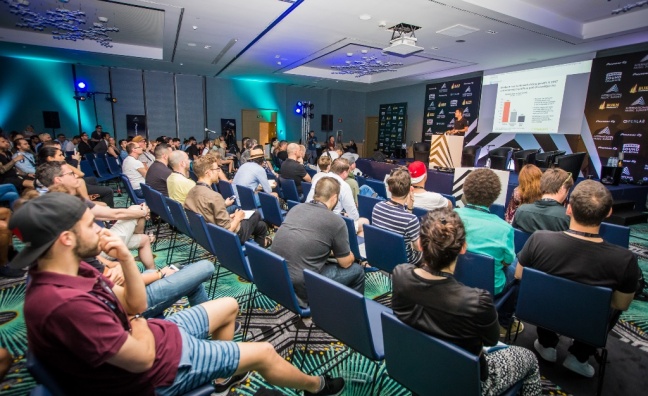Ministry Of Sound Recordings’ sale to Sony, drugs testing at music events and emerging markets were all pored over during the second day of the International Music Summit (IMS) in Ibiza.
Speaking during the Give It Away Or Make It Pay panel, which tackled how the industry needs to evolve “to make money from free”, MoS chairman Lohan Presencer reflected on the circumstances that led to Sony's acquisition of the label back in 2016.
“It became apparent that we weren't going to be able to monetise playlists in the way that we were monetising compilations,” he said. “We’d taken a lot of the profit that we were making to sign and develop artists, and the peak of that was London Grammar. But I could see what was coming on the horizon.
“As people would move to streaming, they weren't going to be buying compilation packages anymore, there was no way of monetising playlists unless you owned all the content that was on those playlists. And then on artists, I needed to have a global marketing structure to really deliver for the bands that we were signing. So us owning Ministry Of Sound ourselves wasn't the best home for Ministry Of Sound Recordings - being part of a major label was the best home.
“Now, what Sony are doing with playlisting, and building the whole Ministry Of Sound playlisting structure across all the digital music services, is something we couldn't do because we didn't have the catalogue to justify that. They've done a fantastic job taking the label to the next level.”
On streaming, Presencer added: “The industry has always gone through format change… And there will be something new that comes along next.”
"I think vinyl in the '90s created a lot more community," argued Toolroom MD Stuart Knight. "Back then I would jump in a van and drop off my records. I would hang out in record stores. Now, the artists are hanging out somewhere on the internet."
Jenni Cochrane, director of strategic partnerships at AEI, argued: "You are losing that personal touch but what you are gaining is massive eyeballs and huge numbers.
"We're about developing new talent, so we can take a track with an artist that no one's ever heard of, upload it and just test it to market. Our channels are recognised, respected brands so we're allowed to experiment and play about with new music. If the track works and the artist cuts through, if they're signed, we can work with them; if they're not signed, we can sign them to the label, we can take them on tour, we can publish them, we can offer them a whole 360 model within our organisation."
Earlier, harm reduction not-for-profit group The Loop hosted a session entitled The Case For: Drug Testing At Events. Two years ago, Secret Garden Party became the first UK festival to trial the testing of drugs onsite. Around 200 patrons used the multi-agency safety testing (MAST) facility, which was brokered in agreement with the local police and council.
The festival’s founder Freddie Fellowes said: “In 20-plus years of doing this, this is the first meaningful change in harm reduction policy that I've seen in our industry and I think it's slightly disgraceful we've had to wait this long to change anything.”
Broadwick Live group production director Jon Drape said: “We do our damnedest to prevent drugs getting onto site - we are certainly not encouraging the use of drugs. However, we accept the fact that they will, no matter what we do, get onto our festival sites.”
“We're very clear that we're not encouraging or condoning drug use,” said The Loop director Fiona Measham. “Everybody who comes to our service has already bought the substance, they've already gone through that process of identifying a dealer and then planning on taking it.”
Fellowes added: “Human beings have been taking drugs as long as they have been human beings. What we need to start doing is actually encouraging a much more healthy relationship with this.
“The way tobacco has been controlled and limited over the last 10 years is a success story for how drugs can actually be controlled and looked after and people's health can benefit as a result of a more mature and proactive approach from the government.”
Emerging Party Destinations, meanwhile, explored the regions that had benefited from Ibiza purportedly pricing younger clubbers out of the market and featured speakers involved with events in Morocco, Portugal, UAE, Croatia, Greece and Mexico.
“Seven or eight years ago, underground music didn’t exist in Dubai,” said Hanene Ben Smail of Blue Marlin Ibiza UAE. “We wanted to do something fresh. We thought about a beach club. We approached Blue Marlin and thought it was the best way to bring Ibiza to Dubai.”
Broadwick Live director Mark Newton said of Croatia’s Hideout Festival, “We position it as a week-long festival experience for people. It’s probably about 80-90% Brits.”
The annual three-day electronic music conference concludes today. Click here for Music Week’s report on day one.










